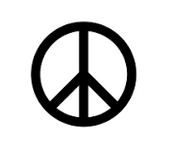It seems that you still fail to understand how determinism works, including your constant conjunction.
So, once again. Given determinism, decisions are made, but seeing that there can be only one option taken at any given instance (constant conjunction, action B must necessarily follow action A, the decision that is made and the action that follows is inevitable. This is not say that you can't make decisions, but that the decision that you make cannot be otherwise.
Why, you ask? Well, as explained time and again, because determinism as you define it to be has no alternate decisions or actions in any given instance as the system evolves without deviation from past to present and future states of the system.
Quote;
''determinism, in
philosophy and
science, the
thesis that all events in the universe, including human decisions and actions, are causally inevitable. Determinism entails that, in a situation in which a person makes a certain decision or performs a certain action, it is impossible that he or she could have made any other decision or performed any other action. In other words, it is never true that people could have decided or acted otherwise than they actually did.''

